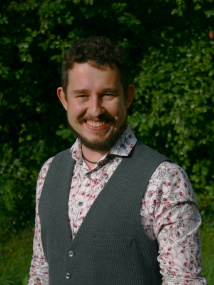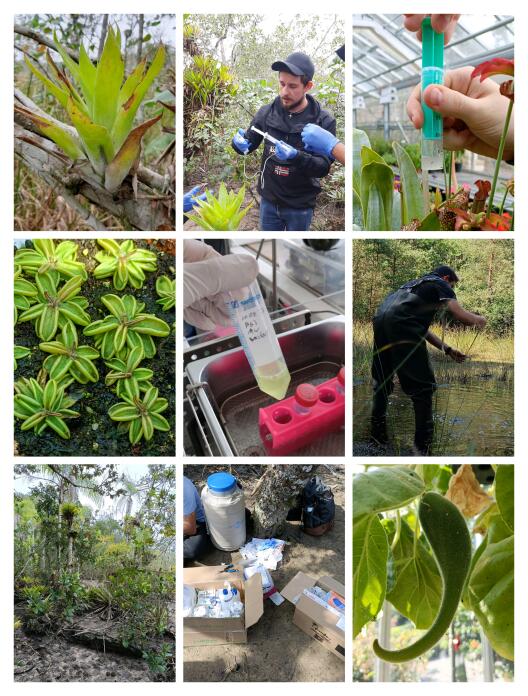Research Areas
- Genomics -- Phylogenetics -- Conservation Genetics -- Mata-Genomics
Education
Research Articles (Journals)
- . . ‘The de novo genome of the Black-necked Snakefly (Venustoraphidia nigricollis Albarda, 1891): A resource to study the evolution of living fossils .’ The Journal of heredity 115, No. 1: 112–119. doi: 10.1093/jhered/esad074.
- . . ‘The genome of the pygmy right whale illuminates the evolution of rorquals.’ BMC Biology 21, No. 79. doi: 10.1186/s12915-023-01579-1.
- . . ‘Genomic Impact of Whaling in North Atlantic Fin Whales.’ Molecular Biology and Evolution 39, No. 5. doi: 10.1093/molbev/msac094.
Dr. Magnus Wolf


Current work:
My research centers on evolutionary and conservation genomics in plants, with a particular focus on carnivorous species, although my work is not limited to them. My research is structured around three main areas: phylogenomics, conservation genomics, and meta-genomics.
In phylogenomics, I work on whole-genome data to uncover the evolutionary pathways that have led to the convergent evolution of carnivorous plants. By comparing the genomes of various carnivorous plant species, I aim to reveal the genetic mechanisms that enable different plant lineages to develop similar traits independently.
In conservation genomics, I apply methods of population genetics and genome-wide data to support the conservation efforts of endangered plant species. My work in this area involves assessing the genetic diversity and gene flow routes within and between populations, as well as clarifying taxonomic uncertainties that may influence conservation strategies. This research helps inform practical efforts to maintain and restore biodiversity in vulnerable ecosystems.
Finally, my meta-genomics research focuses on sequencing the genomes of microbial communities associated with the digestion system of carnivorous plants. By studying these microorganism communities, I seek to understand how their interactions with the plants might have facilitated the convergent evolution of carnivory.
Overall, my research demonstrates how genomic data can be a powerful tool in both evolutionary biology and conservation efforts. Through bioinformatics and genomic analyses, I aim to contribute to a deeper understanding of the evolutionary processes that shape plant diversity and to support the conservation of endangered plant species.
Education:
I began my academic journey with a Bachelor of Science in Biology at the Ruhr University Bochum, where I developed a keen interest in the evolution of host-parasite interactions. My Bachelor’s thesis focused on the adaptations of plant-parasitic smut fungi (Urocystis sp.), laying the groundwork for my future research in evolutionary biology. Building on this foundation, I pursued a Master of Science in Biodiversity, a joint program offered by the Ruhr University Bochum and the University Duisburg-Essen. My Master’s thesis investigated the genome of Urocystis primulicola MAGNUS, examining its phylogenetic relationship to other smut fungi. Additionally, I explored how machine learning tools could be employed to identify effector genes that shape host-parasite interactions, further expanding my expertise in bioinformatics and genomic analysis.
Following my Master’s degree, I entered a PhD program at the Goethe University of Frankfurt in collaboration with the Senckenberg Biodiversity and Climate Research Centre. My doctoral research focused on the application of whole genome data in evolution and conservation studies of baleen whales, allowing me to apply genomic tools to so far unresolved evolutionary and conservation issues. During this period, I studied how the evolution of baleen whales is connected to their resistance towards cancer (Peto’s Paradox) and why most baleen whales retained a high genetic diversity despite being exploited tremendously in the 20th century whaling period. This work cultivated a strong interest in evolutionary biology and conservation genomics, leading me to specialize in bioinformatics and genomic approaches in all kinds of organisms.
